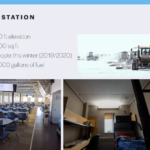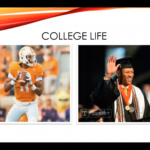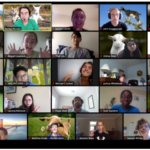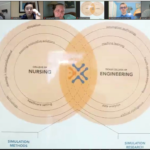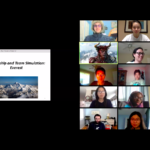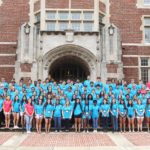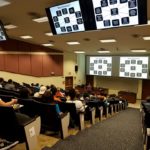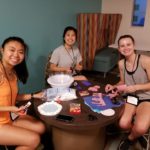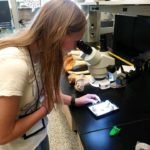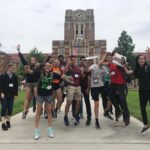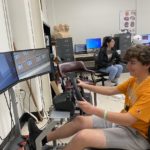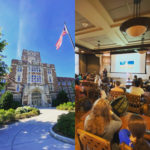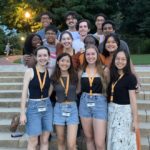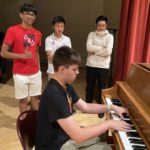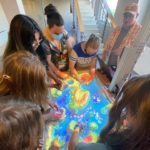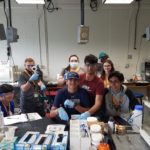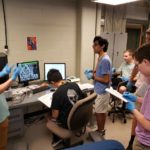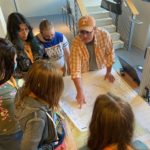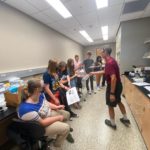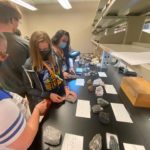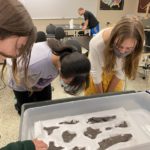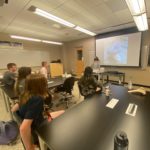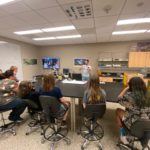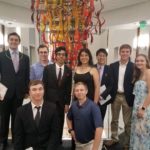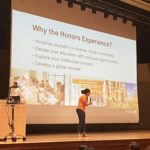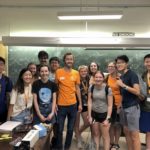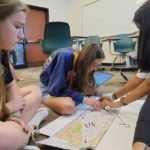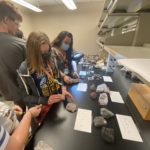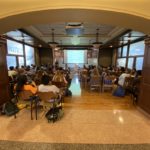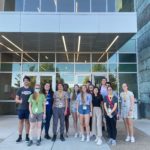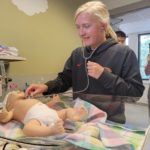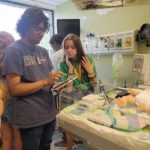 The Governor’s Schools were proposed by Governor Lamar Alexander and mandated by the legislature in 1984 to serve the needs of top high school students in the state. Three schools, Sciences, Humanities and Arts, were started in 1985; others have been added in subsequent years. The Governor’s School for the Sciences (GSS), has been held at the University of Tennessee, Knoxville, since its inception in 1985. The Governor’s School for Engineering began as the Governor’s School for Manufacturing Engineering in 1996. The two programs were merged under a single director in 2007.
The Governor’s Schools were proposed by Governor Lamar Alexander and mandated by the legislature in 1984 to serve the needs of top high school students in the state. Three schools, Sciences, Humanities and Arts, were started in 1985; others have been added in subsequent years. The Governor’s School for the Sciences (GSS), has been held at the University of Tennessee, Knoxville, since its inception in 1985. The Governor’s School for Engineering began as the Governor’s School for Manufacturing Engineering in 1996. The two programs were merged under a single director in 2007.
From 2005 until 2012 the Governor’s Schools were changed from a four-week non-credit format to five-week college-credit programs. From 2013 to 2018, the Schools reverted to a four-week, non credit program. Beginning in 2019, GSSE participants now earn (5) college credit hours upon completion of the program.
The Governor’s School for the Sciences and Engineering is for rising high school juniors and seniors in the state of Tennessee. The program provides the opportunity for advanced study, laboratory experience, and research in modern science and mathematics placed in an appropriate context through the explicit study of scientific reasoning. The essential skills of writing and computer usage are taught as part of the overall experience. Students will be exposed to selected contemporary research areas in science and engineering through a series of guest lectures. Finally, students will consider scientific communication and the interface between science and society.
In 2020, due to the COVID-19 pandemic, GSSE was hosted in a virtual environment across six weeks in June/July 2020. By logging into virtual video conferences, students attended classes daily, met with small-group cohorts led by virtual “Resident Assistants”, and attended extracurricular academic activities with UTK laboratories and science facilities around the world. Some of the international facilities included the CERN laboratory in France, several NASA scientists, the IceCube Neutrino Observatory in Antarctica, the Flerov Lab in Russia, and the Oak Ridge National Laboratory. Students also heard presentations from representatives from University of Tennessee departments such as Admissions, Chemistry, Physics, and Earth & Planetary Sciences. Students attended fun activities such as virtual escape rooms, talent shows, and a presentation by former engineering student and Tennessee Vol quarterback Josh Dobbs. The students and parents were also able to enjoy a virtual opening and closing ceremony that included guests such as UTK staff/faculty, scientists, and US Senator Lamar Alexander.
2021 saw the return of the traditional 4-week program on campus at the University of Tennessee, Knoxville. While 90% of students were on campus, there was still a small virtual cohort in 2021 due to the ongoing COVID-19 pandemic.
In 2021, all students were enrolled in core courses entitled “STEM in Society” and “STEM Skills,” which met in the mornings. Students had a choice of one elective course in science taught in the afternoon. Appropriate courses were Biology 1, Industrial and Systems Engineering, Materials Science and Engineering, Mathematics, Chemistry, and Physics.
GSSE Funding
The rich academic program is supplemented by a variety of events and activities, such as open houses of science and engineering departments, laboratory tours, educational field trips, college and career choice programs, as well as an extensive social and recreational program. GSSE is financially supported by a contract with the Tennessee Department of Education. Classrooms, laboratories and equipment, access to facilities, room and board, and other support are provided by the University of Tennessee, Knoxville.
GSSE admitted 128 students to the 2020 virtual program. 110 students received full scholarships and 18 students received partially funded positions. In 2021 GSSE admitted 174 students to the on campus program. 110 students received full scholarships and 64 students received partially funded positions. Admissions are based on merit as determined by a rigorous review process of all applicants. GSSE funding supports housing, meals, instructional materials, and activities for full scholarship students and a portion of those costs for partially funded students. Upon completion of GSSE, students earn college credit. For the on-campus program, participants have access to campus facilities and services. They are responsible for transportation costs to and from the University of Tennessee, Knoxville, and incidental expenses.
Previous Videos
2021
2020 (Virtual)
2017
2016

